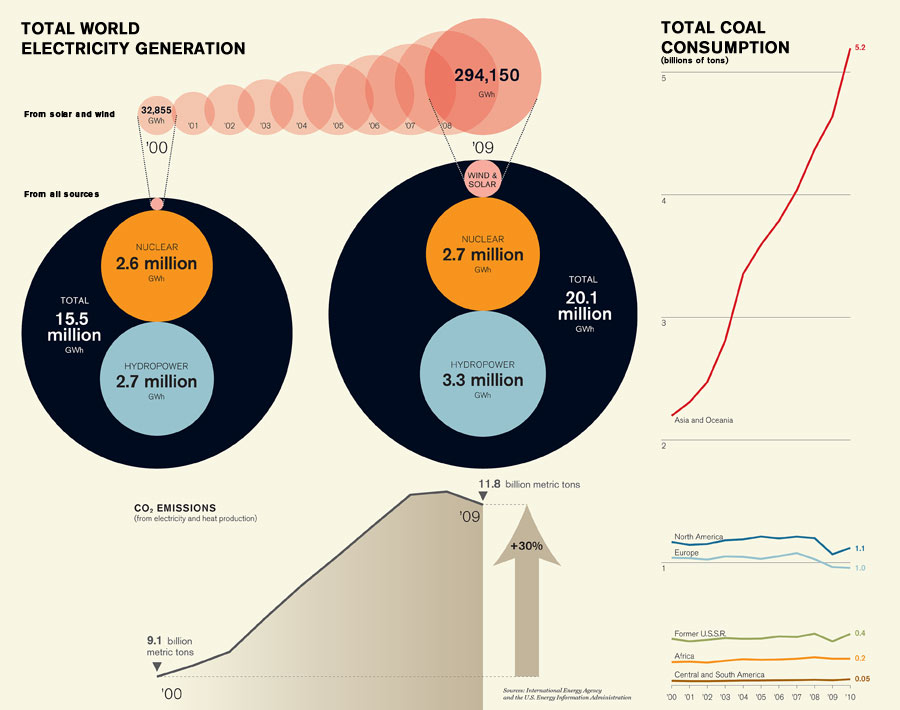Small Gains

The use of wind and solar power ballooned almost ninefold from 2000 to 2009, the most recent year for which the International Energy Agency has made data available. But that hasn’t really shifted the overall mix of the world’s electricity supply.

That’s because worldwide demand for power is growing on a different scale. From 2000 to 2009, as the annual generation from wind and solar rose by about 260,000 gigawatt-hours (GWh), total generation increased by nearly 4.7 million GWh.
As a result, carbon dioxide emissions from electricity production, which represent roughly 40 percent of the world’s energy-related emissions, keep rising. The figure leveled off in 2008 and shrank in 2009 because of the global recession, but an international group of climate scientists recently reported that total fossil-fuel-related emissions grew by 5.9 percent in 2010, the largest annual increase ever recorded. Over half of that growth came from increased combustion of coal, which has held steady as the source of about 40 percent of the world’s electricity. Much of the new demand is coming from Asia.
In these charts, we show how the world’s sources of electricity changed—and didn’t change—in the previous decade. The message: solar and wind have a long way to go.
Keep Reading
Most Popular
Large language models can do jaw-dropping things. But nobody knows exactly why.
And that's a problem. Figuring it out is one of the biggest scientific puzzles of our time and a crucial step towards controlling more powerful future models.
How scientists traced a mysterious covid case back to six toilets
When wastewater surveillance turns into a hunt for a single infected individual, the ethics get tricky.
The problem with plug-in hybrids? Their drivers.
Plug-in hybrids are often sold as a transition to EVs, but new data from Europe shows we’re still underestimating the emissions they produce.
Stay connected
Get the latest updates from
MIT Technology Review
Discover special offers, top stories, upcoming events, and more.